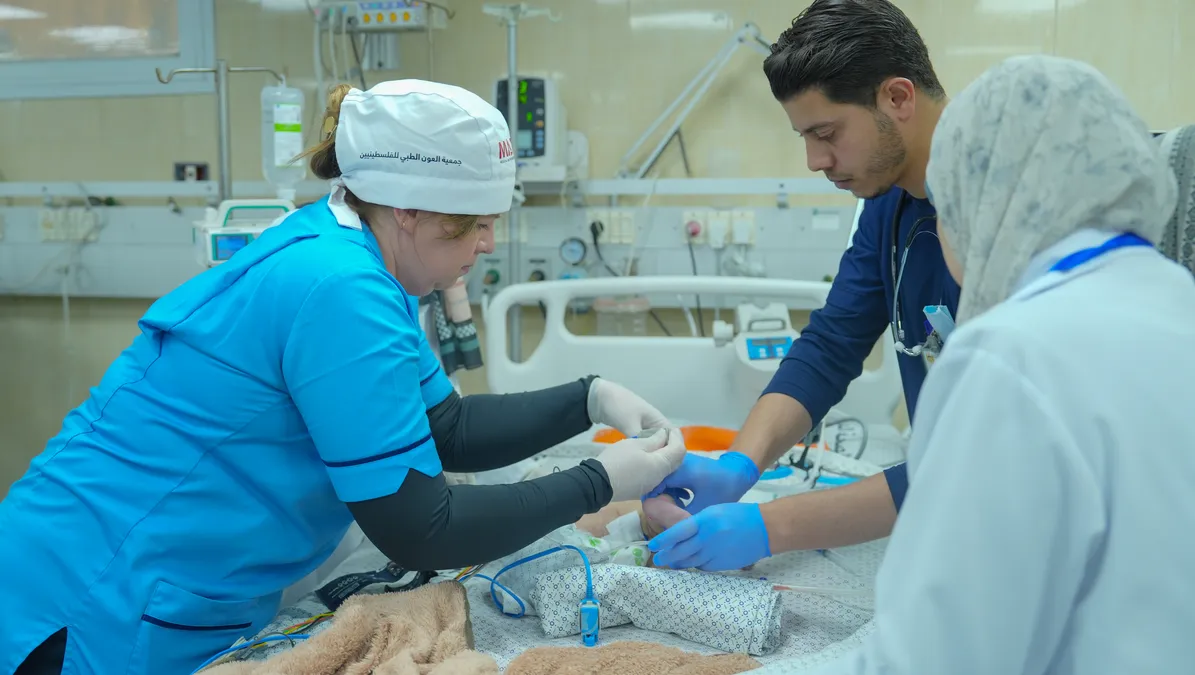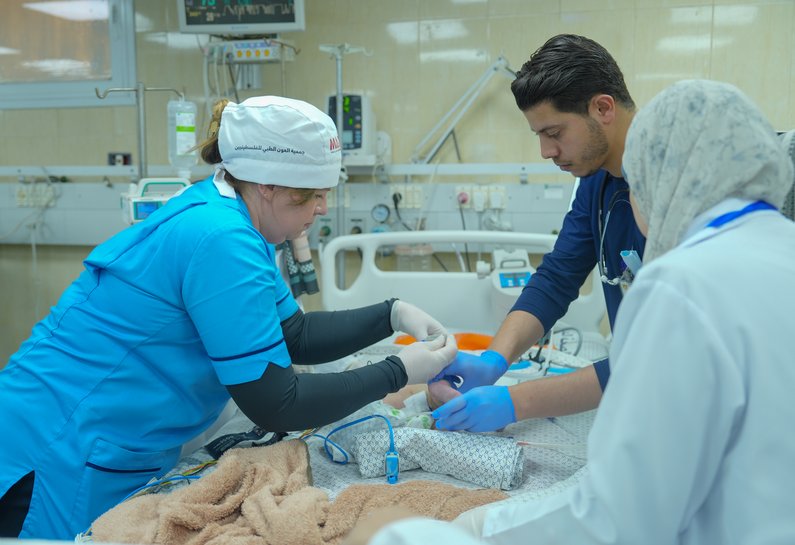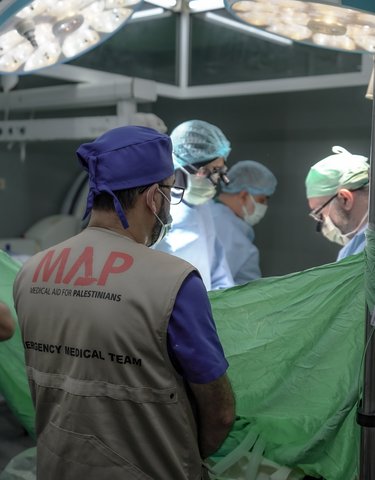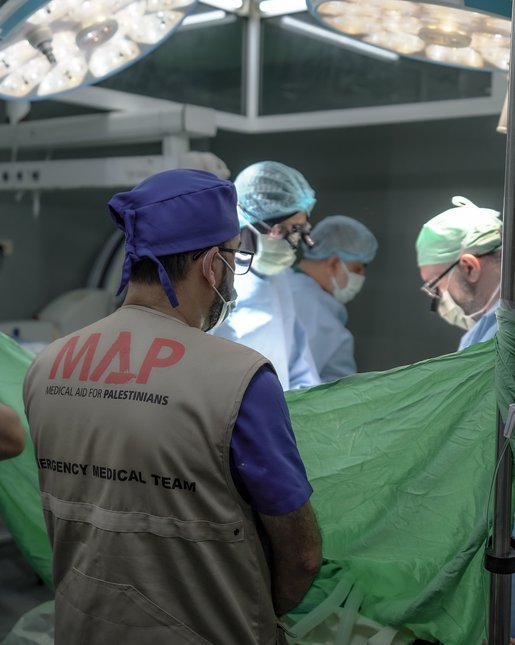Watch: Addressing gaps in neonatal physiotherapy services in Gaza
8 September 2023


One of the objectives of Medical Aid for Palestinians (MAP)’s work in Gaza is therefore to improve the quality of health services provided to newborns. This is mainly being achieved through transferring skills from UK volunteers to Palestinian healthcare workers, in addition to procuring essential equipment.
Neonatal physiotherapy is of paramount importance in facilitating the healthy growth and development of premature infants and those born with medical complications. Physiotherapists specialising in neonatal care employ a range of techniques, including therapeutic exercises, positioning and sensory stimulation, to enhance motor skills, cognitive development, and overall wellbeing. Despite the critical need for neonatal physiotherapy services, Gaza faces several glaring gaps that hinder the provision of adequate care for its youngest generation, including:
- Lack of advanced skills and specialised training opportunities: Neonatal physiotherapy demands a high level of specialised skills and knowledge. However, physiotherapists in Gaza have limited opportunities for further training. This is due to restrictions on movement imposed by Israel’s closure and permit system which prevents many healthcare workers from travelling to other areas of the occupied Palestinian territory, or abroad, for professional development opportunities such as fellowships, trainings, and conferences. This has often meant that physiotherapists are using outdated practices to treat their patients, which limits their ability to deliver the most effective care to newborns.
- Shortages of equipment and medical supplies: Effective neonatal physiotherapy relies heavily on specialised equipment and medical supplies tailored to the unique needs of newborns. In Gaza, a scarcity of essential tools such as therapeutic mats, positioning aids and sensory integration tools hamper the quality of care provided.
A vital need for specialised care
Recognising the importance of neonatal physiotherapy and the challenges faced in Gaza, MAP is taking several steps to bridge the gaps and improve the quality of care for neonates:
- Investment in specialised training: MAP is one of the few organisations working to develop the skills of Gaza’s physiotherapists through in-person medical missions and delivering technical support to promote patients’ outcomes. MAP has supported over 15 on-the-job training missions since 2016 and has supported two physiotherapists from Gaza to receive specialised training in Egypt. MAP has also conducted online training to raise the clinical standards of Gaza’s physiotherapy services. During this neonatal physiotherapy mission, 12 local physiotherapist received the training and a total of 45 neonates were examined across departments at Shifa, Al-Nasser and Rantissi pediatric hospitals in Gaza.
“Through targeted training programmes, I, as a physiotherapist, can acquire new techniques, stay updated with the latest advancements in the field, and develop a deeper understanding of the unique challenges faced by patients,” said Ibtesam Abu Jabal, a physiotherapist at Shifa Hospital in Gaza, who has attended several trainings supported by MAP.
- Procurement of essential equipment: MAP has procured physiotherapy equipment for hospitals worth 50,000 USD. These resources have proved essential for physiotherapists to deliver comprehensive care, tailored to individual patients’ needs.
Neonatal physiotherapy holds immense potential to enhance the lives of newborns in Gaza, particularly those facing developmental challenges and medical complications. As a result of the enormous healthcare needs, there are still gaps, including the lack of advanced skills, specialised training opportunities and equipment shortages. These gaps must be urgently addressed to ensure that neonates receive the care they deserve.
“The significance of MAP’s training lies in its ability to enhance the skills and knowledge of physiotherapists, enabling them to deliver more effective and specialised care. The impact of these training initiatives is far-reaching. It not only improves clinical outcomes but also enhances patient satisfaction and their overall healthcare experience,” said Sami Abu Ewaimer, Director of the Physiotherapy and Rehabilitation Unit at the Ministry of Health in Gaza.
Please donate today to help MAP continue to provide training and equipment for Palestinian physiotherapists and other medical professionals in Gaza.
Photo: Fiona McKeown, a Neonatal Physiotherapist from the UK, trains her Palestinian counterparts in Gaza. (Credit: Palm Media / MAP).

